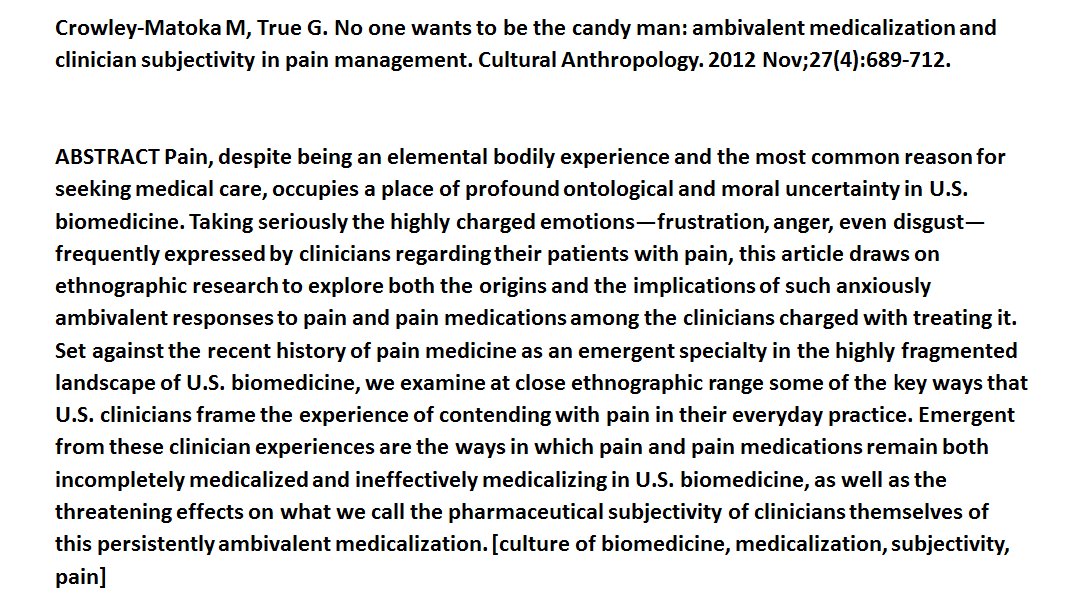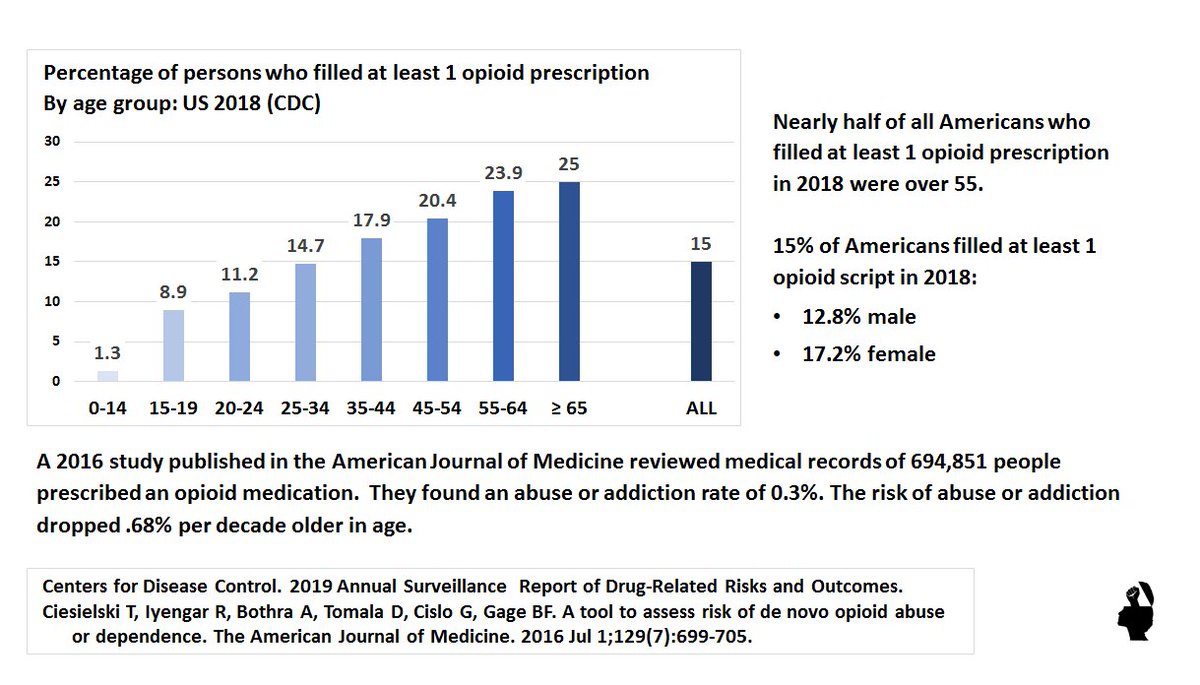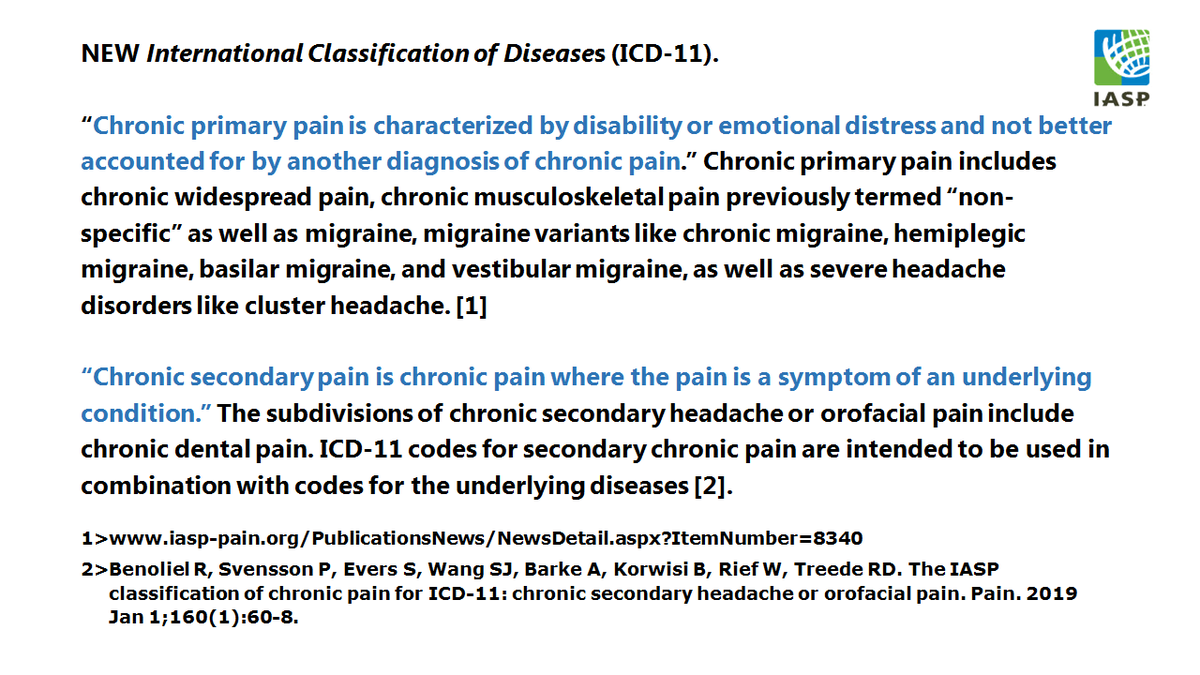
Doctors often wonder if they're treating illness or playing dealer.
For the anthropologists, the phrase "neatly captured the skeptical attitude & adversarial aura often surrounding pain in U.S. medicine."
image that implicitly threatens the typical power dynamics of the doctor–patient relationship."
virtually every area of the body--and thus cuts across virtually every specialty in the fractured practice of medicine, & elusive" because it frequently resists efforts to render it "objective, observable, & reliably measurable."
Doubts about pain disappear when doctors take the focus off the patient's pain & replace it with metaphorical pain of their own (being burned).
them. Equally askew is the position of clinicians," writing rx's they hope patients will underuse or never use.
hope to contribute to taking seriously both the #pain of patients seeking care & the distress of clinicians often uncertain about how best to provide it." d1wqtxts1xzle7.cloudfront.net/43459271/C_A_N…
@headsUPmigraine






